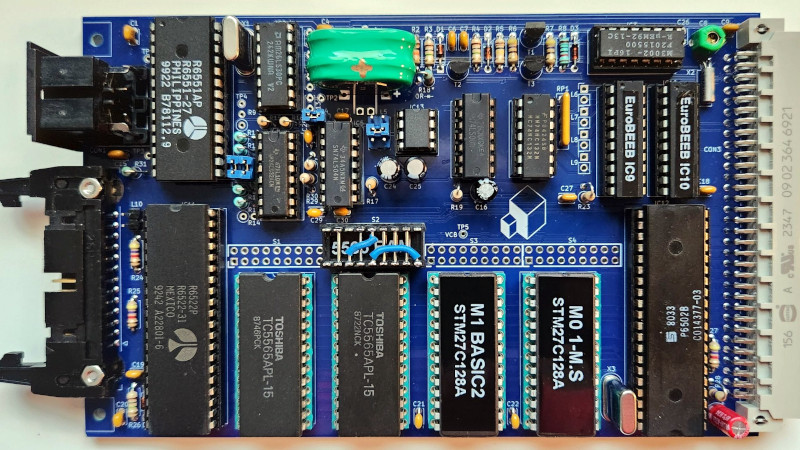Take A Little Bit Of Acorn To Work

When we think of 8-bit computers, it’s natural to start with home computers. That’s where they live on in the collective memory. But a Z80, a 6502, or similar was more likely to be found unseen in a piece of industrial machinery, doing the job for which we’d today reach for a microcontroller. Sometimes these two worlds intersected, and thus we come to the EuroBEEB, a derivative of Acorn’s BBC Micro on a Eurocard. [Steve Crozier] has performed extensive research into this system and even produced a recreated PCB, providing a fascinating window into embedded computing in the early 1980s.
The EuroBEEB was the work of Control Universal, a Cambridge-based company specialising in embedded computers. They produced systems based upon 6502 and 6809 processors, and joining their product line to the then-burgeoning BBC Micro ecosystem would have been an obvious step. The machine itself is a Eurocard with a simple 6502 system shipped with ACORN BBC Basic on ROM, and could be seen as a cut-down BBC Micro with plenty of digital I/O, accesible through a serial port. It didn’t stop there though, as not only could it export its graphics to a “real” BBC Micro, it had a range of expansion Eurocards that could carry the missing hardware such as analogue input, Teletext, or high-res graphics.
The reverse-engineered PCB comes from analysis of surviving schematics, and included a couple of gate array logic chips to replace address decoding ROMs in the original. If it seems overkill for anyone used to a modern microcontroller, it’s worth remembering that by the standards of the time this was a pretty simple system. Meanwhile if you only fancy trying BBC BASIC, there’s no need to find original hardware.
from Blog – Hackaday https://ift.tt/9XVDZvE
Comments
Post a Comment